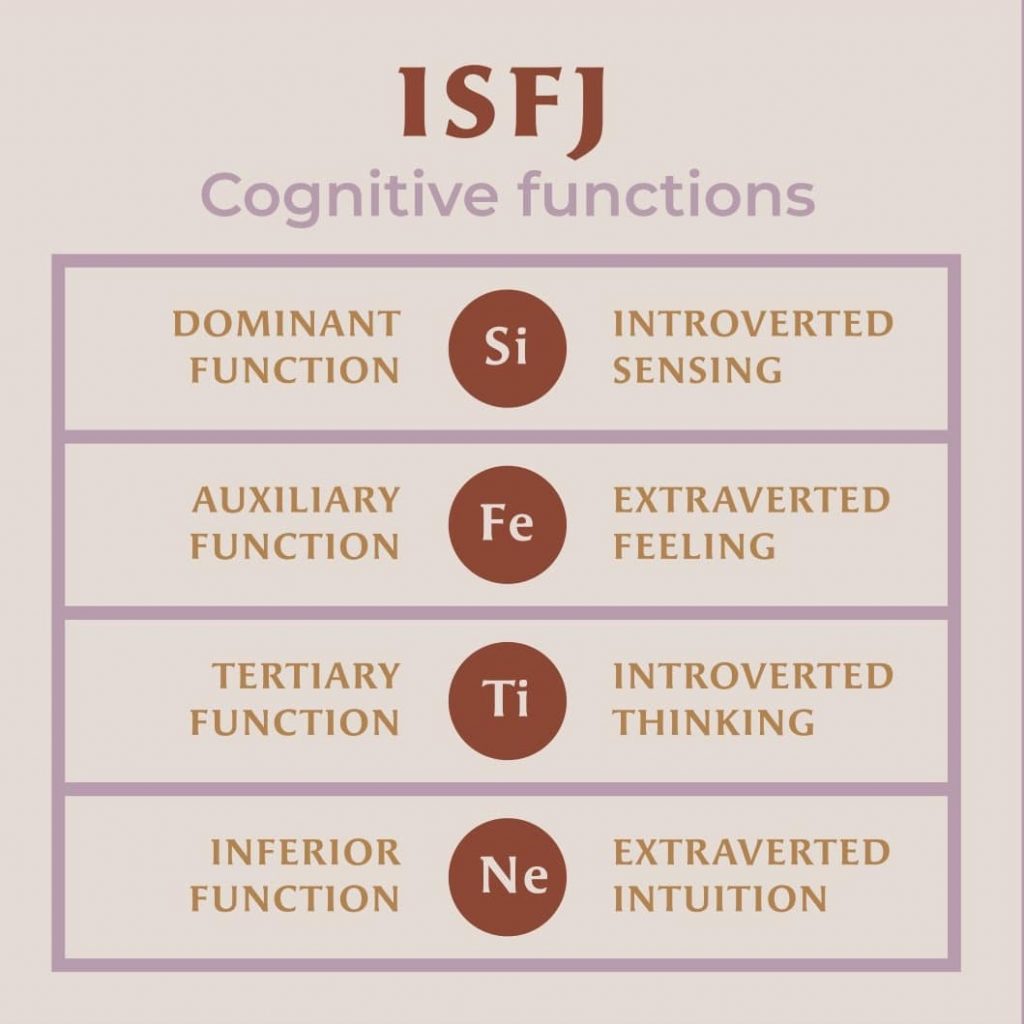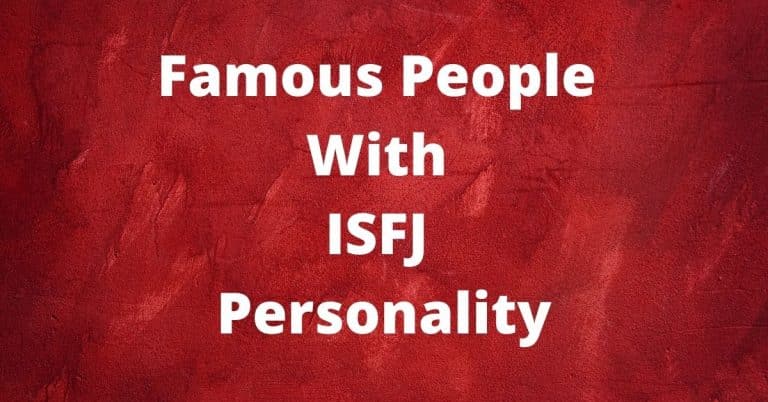ISFJ – The Defender
ISFJ Meaning:
Other names for the ISFJ include the Protector-Supporter, the Conservator or Protector, the Amiable Helper, or the Practical Helper. ISFJs are among the most common personality types at approximately 14 percent of the population. They are considerably more common in women than men, with almost a fifth of all women reporting in as ISTFJ at 19 percent, compared to only 8 percent of men. The ISFJs are known for their deep compassion and have earned the title and reputation as the ultimate caretaker. The ISFJ personality type consists of Introvert, in that they energize themselves by looking inwardly and through intense introspection, Sensing, in that they learn and interact with the world primarily through what they can sense and experience firsthand, Feeling, in that they often consider the emotions and thoughts of others in their decision making and reasoning, and Judging, in that they prefer a logical, particular orderliness in both their personal and professional lives.
The ISFJ tends to be widely revered and appreciated by those around them. Although they tend towards Introversion, they are still very much interested and invested in the lives of others. ISFJs are responsible, reliable, and extremely orderly in their approach to the outside world. They prefer everything to have a proper place and tend to lead rather compartmentalized lives. Given their sensing tendency, they enjoy being practical and efficient in both their personal lives and work. They thrive when they can apply themselves to helping and improving on the lives of their fellow man, whether it is within personal relationships, their colleagues, their family, or their community.
ISFJs are also very focused on achieving their vision and finding practical ways to bring it to fruition. They have a high appreciation and respect for originality. However, they can also be rather critical and skeptical in their perspective and when processing the thoughts and ideas of others. This does not come from a place of feeling threatened or from a competitive space. Rather, they apply the same rigorous scrutiny that they apply to themselves onto others and believe this is the most effective and efficient way to reach the best decision, idea, or course of action.

ISFJ and Career:
Given their Judging preference, ISFJs prefer a work environment where they can thoughtfully plan. They prefer workplaces that are ordered and structured but not to the extreme. Rather, they appreciate the freedom for independent, creative, and original thought in work itself but appreciate familiar routine, schedule, order, and structure in the workplace dynamics.
The ISFJ is also very punctual in general and will ensure that a deadline is never missed. When given a deadline, they will analyze and strategize each step to completion. If they feel that the timeline is unreasonable or if the quality of a task or project is ever in jeopardy due to time constraints, they will not hesitate to make it known.
Also, ISFJs tend to make up their minds and opinions about everything extremely quickly, and it is extremely difficult to change the ISFJ’s opinion once it has been established. In this respect, ISFJs can be perceived as stubborn and unforgiving. However, to the ISFJ, this impression is the correct one.
ISFJ as Direct Reports:
ISFJs tend to have an extremely strong work ethic and receive a great deal of satisfaction from personally seeing through a project from start to finish. They are quietly confident in their abilities and always enjoy finding new and creative ways to streamline any given job or task further.
ISFJs also respect and prefer clear rules and expectations in the workplace. It is, therefore, the task of the ISFJ’s manager or leader to ensure that these rules are, in place, effectively communicated, and properly enforced. A work environment that does not have clear rules or expectations is a form of stress for the ISFJ and can negatively impact the morale and productivity of the ISFJ, depending on just how lax and unstructured the work environment is.
Given the propensity for Introversion, the ISFJ will also prefer to work independently whenever possible and keeps mostly to themselves. If required, they will participate and contribute to teams. However, they find they are most comfortable and productive when they are left to their own devices with a clearly set goal and task with clearly set guidelines. With a task and a due date, the ISFJ will create a structured step-by-step map to achieve the goal. However, as others are difficult to predict and depend upon, the ISFJ would prefer to work alone, as this allows them complete control to ensure the task is done correctly and on time.
ISFJs are both Feeling and Sensing, which may cause others to perceive them as particularly sensitive. While this sensitivity and emotional intelligence lend themselves well to their value of helping others, it can also be a stressor for the ISFJ as well as their colleague in the workplace.
When in a team environment with the more Thinking and Perceiving personality types, they may tend to censor themselves or neglect to share their thoughts and opinions in an effort to avoid potential conflict or difference of opinion. ISFJs do not enjoy conflict involving themselves and do not particularly enjoy seeing it between others as well. As such, this is another reason why the ISFJ takes an appreciation for a workplace that has very clear rules and processes, as this tends to leave less opportunity for conflict within the workplace.
ISFJ as Leaders of Others:
ISFJs are practical, appreciative, and typically very traditional in their approach as leaders of others. The ISFJ will always have time and attention for the needs and wants of their team. They firmly believe in an ‘open-door policy’ and are genuine in their care and concern for their team members. However, leadership also requires discipline and conflict management, both of which the ISFJ is not necessarily comfortable with. As such, An ISFJ must make a conscious effort to recognize and appreciate that, just as they believe rules and hierarchy to be necessary for a conducive work environment, they cannot expect everyone to just follow the rules. They must also realize that discipline and difficult conversations are an inevitability.
While the ISFJ can certainly learn to manage these expectations and responsibilities, it does not mean that they will particularly ever enjoy doing them. This is part of the reason why ISFJs tend to avoid or pass on Leadership roles and opportunities when they come along.
ISFJ Professions:
Given their empathy, compassion, and focus on bettering and assisting others, ISFJs make for highly competent and effective social and community workers, such as Child Care Workers and Funeral Service Workers.
Also, their personality and temperament lend extremely well to the Healthcare Sector, including, Registered Nurse, Dental Assistant, Psychiatrist, Therapist, General Practitioner, Orderly, Personal Care Aide, Pharmacist, Optometrists, Medical Assistant, Surgeon, Surgeon’s assistance, as well as Veterinarian.
These same preferences also lend well to the INFP as an Educator, including Pre-Elementary School Teacher, Middle School Teacher, High School Teacher, Principal, Teacher’s Assistant, College or University professor, and Personal Trainer.
While the INFJs makeup is most likely compatible with these possible careers and professions, that is not to say that they will instantly or automatically be successful. Rather, it is to say that these professions naturally align with the INFJ’s core values and perspective. As such, just as there are those career paths and occupations that may be more ideal for the ISFJ, there are also those that are less compatible, and therefore less ideal for the ISFJ should exercise caution when considering professions that are fundamentally clashing with their ideals. These include Military Officer, Actor, Social Scientist, Corporate Executive, Lawyer, and Copywriter.

ISFJ and Interpersonal Relationships:
ISFJs are profoundly loyal and responsible in their personal relationships. Given their Introverted tendency, they tend not to have large social circles but are extremely devout and dedicated to those they do allow into their personal space and lives. They are compassionate, caring, and thoughtful of those they hold close and hold dear, and this makes for extremely strong bonds and relationships that are built and maintained to last.
ISFJ in Friendships:
ISFJs are best suited to personality types who share similar values and beliefs. This is particularly true when it comes to the ISFJs altruistic and helpful nature. If the ISFJ perceives someone to be selfish or to be primarily concerned only with themselves and their needs and wants, chances are that they will be instantly at odds.
Rather, the ISFJ becomes fast and enduring friends with those who share their same core values and beliefs. These personality types tend to consist of fellow Judging, Feeling, and Sensing types. These include the ISTJ (Introvert, Sensing, Thinking and Judging), the INFJ (Introvert, Intuitive, Feeling and Judging), the ESFJ (Extravert, Sensing, Feeling and Judging), and as well, of course, other ESFJs.
However, this is not to say that these personality types will always work and get along. Rather, it is to say they have much more opportunity to bond or relate given their similar beliefs and values. Therefore, just as there are more personality type combinations that may be more compatible than others, the same is true for clashing personality types.
The ISFJ will struggle to relate to Thinking and Intuitive personalities the most, as they do not place the same value, merit and do not display the same tact that the ISFJ does. Some of the more clashing personalities include the INTP (Introvert, Intuitive, Thinking and Perceive), the INTJ (Introvert, Intuitive, Thinking and Judging), the ENTP (Extravert, Intuitive, Thinking and Perceiving), as well as the ENTJ (Extravert, Intuitive, Thinking and Judging).
Again, this is not to say that these personalities cannot form strong and meaningful relationships. However, it is to say that these two personality types may find it more challenging than others, given their vast difference in core beliefs and values.
ISFJ in Romantic Relationships:
In romantic relationships, ISFJs are diligent, dedicated, and supremely loyal. They also expect the same from their partner as well. ISFJs can also tend towards being more traditional in their approach to the relationship. However, they also welcome spontaneity within the relationship, albeit in measured doses.
Like other Feeling and Introverted personality types, the ISFJ does not embrace conflict. This is also true in their relationships. As such, they may allow their needs and wants to be neglected or glanced over (either intentionally or unintentionally) to avoid difficult conversations and potential disagreements.
ISFJs will make concentrated efforts to maintain balance and harmony within the relationship; however, they should also be aware of the potential to give too much themselves and not be too self-less in the relationship, lest it builds up to an irrevocable point.
ISFJ and Families:
In families, INSJs are also very traditional. They set boundaries and rules for their children and want only what is best for their families. ISFJs tend to share their fundamental values and beliefs with their children and instill a sense of altruism and humanitarianism at an early age. However, again, ISFJs must take care not to lose themselves entirely in making others happy. Particularly in the case of family, they do not want their children to fall adopt this tendency.
Conclusion:
As such, the ISFJ maintains a temperament of practicality and structure balanced with deep consideration and care for others’ feelings and well-being. Professionally, ISTJs can be effective in any given team. However, they are most comfortable in a work environment that is structured and organized, with little to no potential for conflict. They also value freedom for independent and creative thought. Above all else, however, they want to do work that helps others, which is fundamentally charitable.
ISFJs apply the same approach to their personal lives as well and work best with friends and lovers who hold similar foundational beliefs and opinions. The ISFJ is a true Helper of sorts. However, they must be careful not to give too much of themselves away, lest they lose their sense of self and identity.
You can find information on famous people with ISFJ personality types such as celebrity actors, sportsmen, characters and other historical characters with this personality type.







